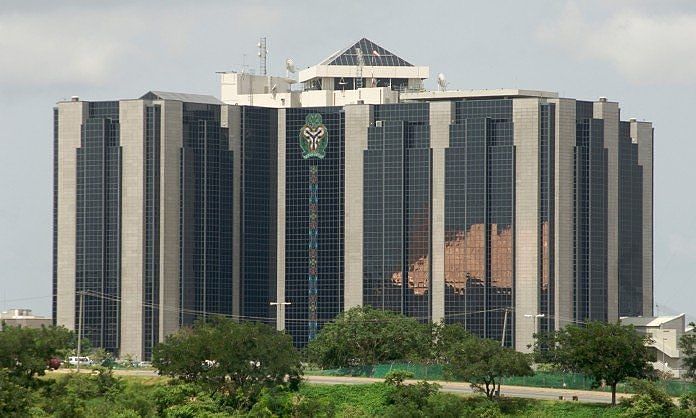This post has already been read 4029 times!
Following Tuesday’s 50 basis points cut in the Monetary Policy Rate (MPR) by the Central Bank of Nigeria’s (CBN) Monetary Policy Committee (MPC), from 14 per cent to 13.50 per cent, analysts have predicted that the naira will appreciate in the coming days.
Analysts anticipated that the naira would follow the trend that was seen in the Egyptian pound after the country’s central bank slashed interest rate earlier this year.
While the naira closed at N306.95 to a dollar on the official forex window thursday, it closed at N360.80 to a dollar on the investors’ and exporters’ window.
But Bloomberg in a report pointed out that for investors considering the fate of naira after the central bank’s unexpected rate cut, Egypt may be a better guide than Ghana.
Both Egypt’s and Ghana’s central banks had cut their main interest rates earlier this year, surprising most analysts surveyed by Bloomberg. But their currencies reacted differently.
The Egyptian pound has since strengthened against the dollar and is one of the world’s best-performing units this year. Ghana’s cedi has tanked.
The naira has the potential to go the way of the Egyptian pound, analysts stated.
Among the key factors that would drive the currency, they said, are the steep rise in Brent oil prices this year to almost $70 a barrel and the $6 billion that has flowed into the Nigerian fixed-income market since last month’s general election.
Nigeria’s reserves, at $44 billion, are the highest since September, giving central bank Governor, Mr. Godwin Emefiele, plenty of firepower should he need to defend the currency.
Like Egypt, Nigeria’s yields remain attractive.
The central bank has kept rates high for the past months or so using short-term instruments known as open-market operations to rein in liquidity. Average yields on naira bonds of 14.4 per cent are the fourth-highest among large emerging markets, according to data compiled by Bloomberg.
Ghana’s carry returns are juicy too. But it is battling perceptions that it won’t manage its finances properly after a four-year bailout with the International Monetary Fund ends next month.
They stressed that for Nigeria, the signs so far are positive.
Meanwhile, the Lagos Chamber of Commerce and Industry (LCCI) has welcomed the decision of the MPC.
It said: “This is in consonance with the clamour by the private sector for a relaxation of the tight monetary policy regime in the light of weak consumer demand, fragile economic growth and high rate of unemployment.
“We acknowledge that this reduction is not materially significant, but it has a symbolic and signalling value. It is gratifying to note the shift in policy focus by the Central Bank of Nigeria from stability to growth. This is the appropriate policy choice at this time.
“The reality is that the economy is currently characterised by fragile growth at 2.3 per cent; unemployment at 23.1 per cent and youth unemployment at 36.5 per cent; high dependence on crude oil export; weak diversification and high poverty incidence. The economy needs both monetary and fiscal stimulus at a time like this.”
The Chamber, in a communiqué signed by its Director General, LCCI, Muda Yusuf, pointed out that economic policies are typically characterised by tradeoffs, adding that policy choices are driven by what is utmost economic objective at a given point in time.
It stressed that the priority at this time should be to stimulate growth, adding that it was also important to address misalignment between the banking system activities, stimulation of economic growth and promotion of economic inclusion.
“A prosperous banking system in the midst of a stagnating real economy is not a good commentary on the quality of economic management. The current configuration of the financial system and financial intermediation actions are not in tandem with poverty reduction goals, economic inclusion and the job creation objectives,” it added.
However, Moody’s Investor Services, in a one-paragraph note yesterday, pointed out that the “rate cut had been expected as real interest rates have remained positive for almost a year. However, its potential impact on growth is likely to be limited since its transmission to the real economy and to lending rates is weak in Nigeria.”
To analysts at Lagos-based CSL Stockbrokers Limited, following the MPC decision, investors in the fixed income secondary market adjusted their quotes to reflect the rate reduction as yields in both the bonds and t-bills markets compressed by about 12 basis points and 18 basis points respectively.
In the bonds market, the 2027 bond through to the 2036 bond witnessed some buying interest as the yield on each bond fell by no less than 15 basis points each.
In the Treasury Bills market, select maturities recorded different degrees of buying interest.
“Although we saw renewed bullish sentiment in the fixed income space yesterday, investors were still cautious with their trades- particularly the bond investors who were focused on the outcome of the bond auction held by the Debt Management Office (DMO),” the investment firm stated.
Nevertheless, the performance of the stock market has remained sluggish as investors continue to weigh the impact of the policy on their investment.
The Nigerian Stock Exchange (NSE) market capitalisation which dipped the previous day, appreciated marginally by 0.01 per cent thursday to close at N11.594 trillion.
After keeping the benchmark MPR unchanged for 33 months, the MPC on Tuesday reduced it from 14 per cent to 13.5 per cent.
The CBN hinged its decision on the need to boost economic growth.
[ThisDay]



